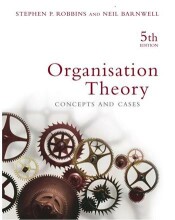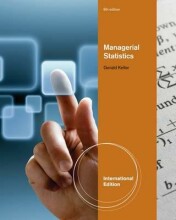Business Organisations: The Legal Framework
17 important questions on Business Organisations: The Legal Framework
What are the 2 general types of business organisations?
2. Incorporated - registered company aka corporation
What are the 2 types of persons according to the law?
2. Legal persons - incorporated businesses
What are the advantages and disadvantages of sole tradership?
Own boss
Not having to comply with specific legal formalities
Con:
Debt of company equals debt of person as the business and person are one and the same
- Higher grades + faster learning
- Never study anything twice
- 100% sure, 100% understanding
What are the 2 general terms in the Partnership Act?
2. Every partner can claim an equal share of profits even if some partners do more for the business than others
What is a limited partnership?
General partners remain liable, but that of the silent partners is limited
What are the roles of a promoter?
2. Is subject to fiduciary duties
3. Enters into pre-incorporation contracts where they can be personally liable
What are the main differences between a public and private company?
2. Public must have a minimum share capital, private doesn't
3. Public must have limited liability, private CAN have limited liability or limited by guarantee
4. Public (in the UK) must have 2 directors but can have 1 shareholder, private can have one director and one shareholder
5. Public company name must have Plc as suffix, private Ltd
6. Public is in the US a publicly held corporation, a private is a close held corporation
What documents are required when registering a company?
1. Memorandum of association
2. Registration form
3. Articles of association
US
1. Articles of incorporations
What is an object's clause?
What are the articles of association?
What is the difference between authorised share capital and issued capital?
What are the 2 different types of loan capital?
2. Secured lone (where property has been pledged to cover any default in repayment)
What are the 3 different types of debentures?
2. Series of debentures (separate loans ranking equally)
3. Debenture stock (one fund, debenture trust can be in place)
What are the 2 types of charges used to secure debentures?
2. Floating charge - Created over an identifiable class of assets of a fluctuating nature (e.g. Tools, furniture, etc.). Company doesn't need permission to sell if in ordinary business, but it crystallises when the company defaults on the debenture
What are the 3 types of registered companies?
2. Limited by guarantee - shareholders are liable for the amount they have guaranteed to contribute if company is wound up
3. Unlimited - shareholders are fully liable for debts of company if wound up
What is disclosed in the application for registration?
What is a trading certificate?
The question on the page originate from the summary of the following study material:
- A unique study and practice tool
- Never study anything twice again
- Get the grades you hope for
- 100% sure, 100% understanding





























